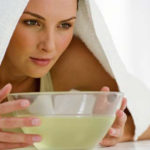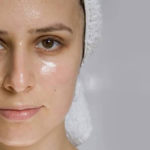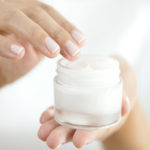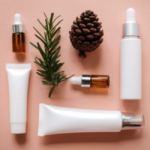Grapes are considered a nutrient-rich fruit with several health benefits. Let’s explore whether eating grapes can cause acne and learn about the pros and cons of grapes in today’s article!
1. Nutritional Value of Grapes
 Nutritional Value of Grapes
Nutritional Value of Grapes
Grapes are a fruit packed with nutrients, especially vitamin K, which helps support strong bones and plays a crucial role in blood clotting. According to research, 150g of grapes contain the following nutrients:
- Thiamine: 7% RDI.
- : 104.
- : 5% RDI.
- : 1.1 g.
- : 1.4 g.
- : 27.3 g.
- : 0.2 g.
- Riboflavin: 6% RDI.
- : 6% RDI.
- : 27% RDI.
- : 28% RDI.
- : 8% RDI.
- Copper: 10% RDI.
2. Benefits of Grapes for the Skin
 Benefits of Grapes for the Skin
Benefits of Grapes for the Skin
According to aesthetic doctor Pham Duc Tuan, grapes contain high levels of , a powerful antioxidant that slows down the skin’s aging process and reduces stress in the body. This helps decrease the activity of genes associated with aging and promotes longevity.
Additionally, the resveratrol in grapes has strong antioxidant properties and prevents the formation of harmful free radicals, leading to a significant reduction in acne.
3. Does Eating Grapes Cause Acne?
 Does Eating Grapes Cause Acne?
Does Eating Grapes Cause Acne?
Do Green Grapes Cause Acne?
Similar to other types of grapes, green grapes do not cause acne when consumed. However, if you have an allergy to green grapes or any specific component in grapes, you may experience unwanted side effects, potentially leading to acne formation.
Do Dried Grapes Cause Acne?
Eating dried grapes is not a direct cause of acne, but consuming too many of them can lead to serious health issues, especially for your skin. Excessive intake of dried grapes can increase blood sugar levels, creating favorable conditions for acne-causing bacteria to thrive.
Additionally, acne may be caused by other factors, such as an allergy to grapes or other fruits. If you are allergic to grapes, consuming dried grapes can also affect your skin and lead to acne. In such cases, it is advisable to seek timely assistance from dermatological medical facilities to receive appropriate treatment.
4. Can People with Acne Eat Grapes?
 Can People with Acne Eat Grapes?
Can People with Acne Eat Grapes?
If you’re dealing with acne, you can still enjoy grapes as part of your diet. In fact, eating grapes can even enhance the effectiveness of your acne treatment. As mentioned earlier, grapes are a rich source of, which helps prevent and slows down skin aging. However, it’s important to consume grapes in moderation and avoid overeating to prevent any unwanted side effects.
5. Are Grapes Good for Skin and Health?
 Are Grapes Good for Skin and Health?
Are Grapes Good for Skin and Health?
Yes! Grapes offer numerous benefits for both your skin and overall health. They are rich in nutrients and vitamins like, vitamin B2, and more, all of which are great for the skin. These nutrients help strengthen and tighten the skin while detoxifying it and preventing various types of acne.
Consuming grapes in moderate and appropriate amounts not only helps cool down and detoxify the body but also enhances the body’s natural detoxification processes.
6. Grape Skin Care Tips for Acne-Prone Skin
 Grape Skin Care Tips for Acne-Prone Skin
Grape Skin Care Tips for Acne-Prone Skin
Eat Grapes the Right Way
Grapes are an excellent source of vitamin C, which plays a vital role in maintaining skin elasticity and providing that keeps the skin looking plump. Eating grapes can also help repair damaged skin and prevent skin aging. The vitamin A in grapes nourishes the skin, making it softer and healthier. It is recommended to consume around 200g of grapes per day to ensure optimal nutrient absorption.
Use Grapes as a Face Mask
The vitamins in grapes can improve the skin’s appearance and make it look younger. You can use grapes as a face mask to soothe and fade dark spots and blemishes effectively.
To make a grape face mask, simply crush a few grapes and mix them with water. Apply this mixture to your skin and leave it on for about 15 minutes until it dries, then rinse it off with clean water.
This article has provided comprehensive information about whether eating grapes can cause acne. We hope that through this article, you have gained insights into the pros and cons of consuming grapes. If you found this article helpful, please share it with your friends and family!






































